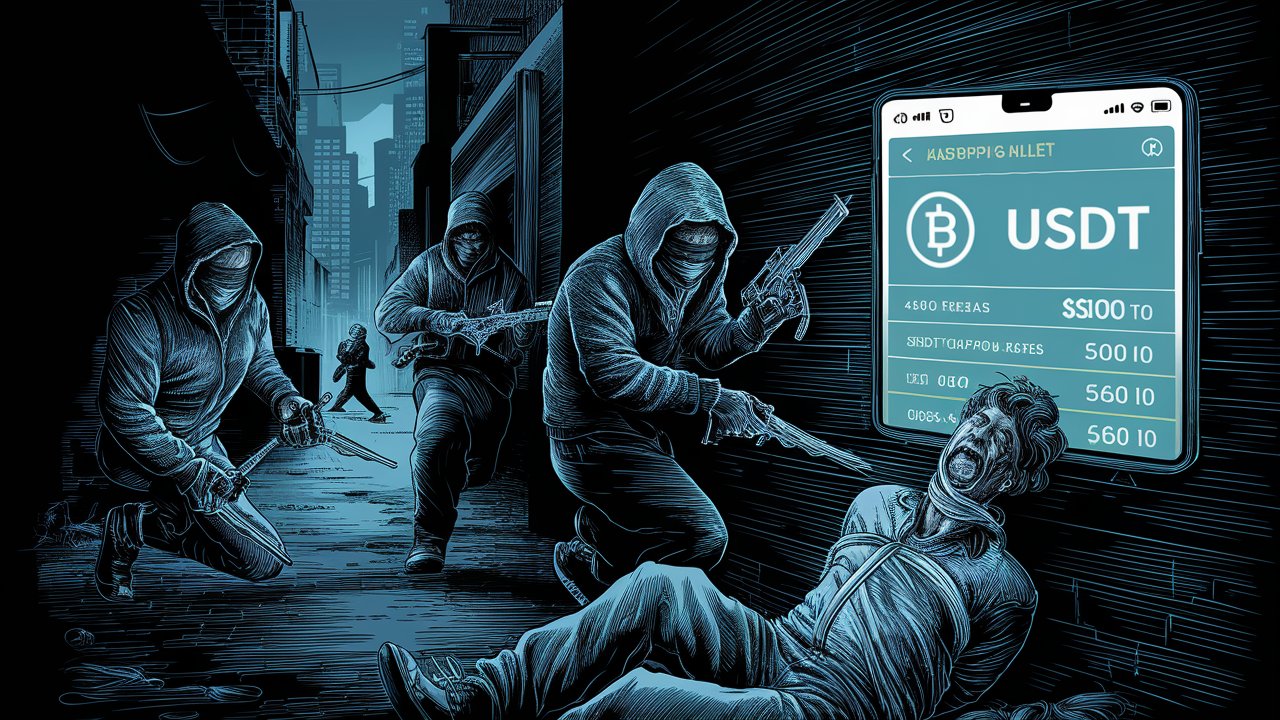
On July 3, 2024, kidnappers killed two Chinese businessmen in the Philippines.The kidnappers demanded a ransom of 15 million yuan in USDT (Tether), a cryptocurrency. This incident reflects a troubling trend of using cryptocurrencies in ransom demands, complicating authorities’ efforts to trace payments.
The kidnappers abducted prominent businessmen from China in Manila’s business district. They contacted the families, demanding the ransom exclusively in USDT. Despite negotiations, they did not fully pay the ransom, leading to the tragic deaths.Authorities are investigating but have not released further details about the kidnappers.
Cryptocurrency and Ransom Demands USDT
In a separate incident, kidnappers took a three-year-old child from a playground in Hong Kong and demanded ransom in USDT, causing widespread fear among residents. The kidnappers demanded an undisclosed amount in USDT, leveraging the anonymity provided by cryptocurrencies. Fortunately, the child was rescued unharmed after a swift police operation. The use of USDT in these cases highlights the growing preference for cryptocurrencies in criminal activities due to their untraceable nature.
Cryptocurrency-related kidnappings have increased significantly in the Philippines, particularly involving Chinese nationals connected to the Philippine Offshore Gaming Operators (POGO) industry. On December 15, 2021, security forces arrested six suspects in Las Piñas City, Metro Manila, linked to the kidnapping of two Chinese citizens and one Filipino. The victims were rescued, and several firearms were recovered from the suspects. Authorities reported that the kidnappers targeted individuals associated with the POGO industry, reflecting a broader pattern of criminal activity linked to online gambling operations.
A notable case in 2023 involved the kidnapping and murder of Mario Sy Uy, a Chinese-Filipino businessman. Uy was abducted on his way to his store in Quezon City. The kidnappers demanded a ransom of over one million pesos, paid in multiple installments. Despite the payment, the kidnappers brutally tortured and killed Uy. They left his body with gunshot wounds and torture marks, including a severed toe. Police arrested the suspects, three Chinese nationals and one Vietnamese, after tracing the ransom money deposited in their bank accounts. The case drew attention to the links between kidnapping incidents and the POGO industry. It prompted calls for stricter regulations and enforcement.
Rising Threat and Law Enforcement Response
Armed men kidnapped a Malaysian national in Manila and killed him despite receiving a ransom payment of 330,000 Malaysian ringgit. They held the victim captive for several days and demanded the ransom in cryptocurrency, complicating the investigation. The perpetrators demonstrated their ruthlessness by killing the victim despite receiving the ransom. This underscored the challenges law enforcement faces in handling cryptocurrency-related crimes.
The use of cryptocurrencies in ransom demands has become a significant concern for authorities worldwide. The anonymity and ease of transferring digital assets make them an attractive option for criminals. In response to the rising trend, law enforcement agencies are enhancing their capabilities to track and trace cryptocurrency transactions. However, the decentralized nature of cryptocurrencies poses a significant challenge, requiring international cooperation and advanced technological solutions.
The kidnappings in the Philippines and Hong Kong underscore the urgent need for comprehensive strategies to combat cryptocurrency-related crimes. The involvement of organized crime syndicates in these incidents calls for a coordinated effort between local and international law enforcement agencies. The focus should be on strengthening regulations, enhancing surveillance capabilities, and promoting awareness about the risks associated with cryptocurrencies.
Take away
People are urging authorities in the Philippines to protect Chinese citizens amid the wave of gambling-related kidnappings. The Chinese embassy has called on Philippine authorities to safeguard the rights and interests of Chinese nationals in the country. The Philippine National Police (PNP) has acknowledged the issue, noting the significant rise in kidnapping incidents linked to the POGO industry.
The recent cases highlight the evolving nature of criminal activities involving cryptocurrencies. As the digital asset market continues to grow, so does the potential for misuse. It is imperative for authorities to stay ahead by implementing robust measures to prevent and investigate cryptocurrency-related crimes effectively.
Read more: Hong Kong’s New Crypto Rules Prompt OKX and Gate.io to Cease Operations
Discover more from The African Crypto
Subscribe to get the latest posts sent to your email.
















